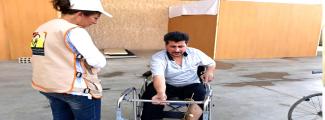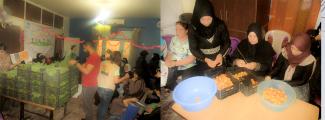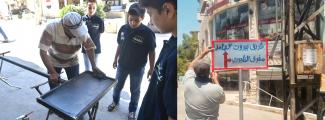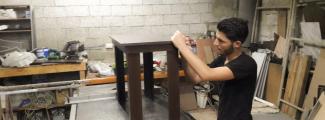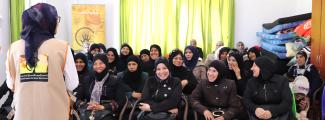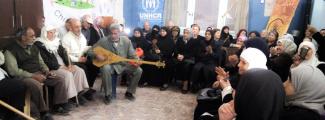Love and giving are our priorities. No one in the community should be left behind. Everyone should be at the heart of life. That is why the SSSD team, in cooperation with the UNHCR, offered medical assistance to IDP arrivals from East Ghouta who live currently in the temporary shelters of Adra al-Balad (Institute of Electricity, Faihaa Center).
As of April, customized medical assistance has been provided to 155 cases. Assistance included wheelchairs for the disabled (children and adults), blood pressure gauges, nebulizers, medical crutches (axillary, elbow, tripods), medical glasses, etc. Assessing people’s needs had been done beforehand by SSSD volunteers to monitor those in need of medical assistance, as well as case studies in order to provide the best service possible.
The impact of these relief actions was immediately tangible in the words and expressions of the beneficiaries. They freely expressed to what extent these services would improve their quality of life and enable them to access a certain measure of autonomy, to work and support themselves and their families.

